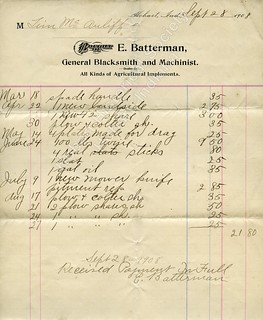
(Click on image to enlarge)
Image courtesy of the Hobart Historical Society and Jocelyn Hahn Johnson.

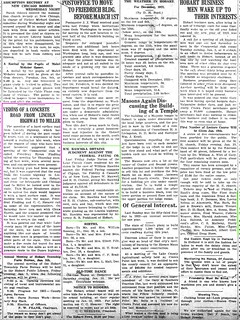
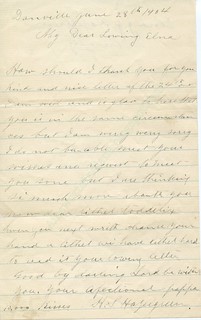
Danville June 28th 1904
My dear lowing Elna
How should I thank you for your kind and nice letter of the 24th inst. I am well and is glad to here that you is in the same circumstances but I am werry werry sorry I do not be able to meet your wishes and request to meet you sone but I am thinking so much more abouth you now dear lithel toddelix hwen you next writh chanse your hand a lithel wi have lithel hard to read it your lowing letter. Good by darling Lord be with you. Your afectionat pappa
10,000 kisses
H.S. Hazelgreen.
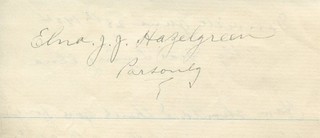
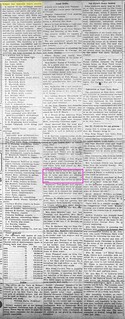
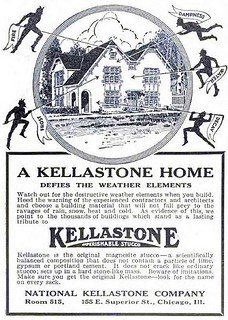
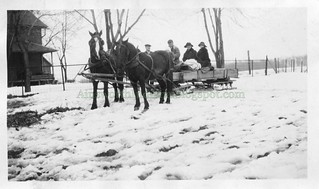
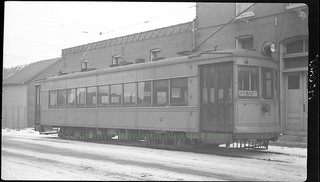
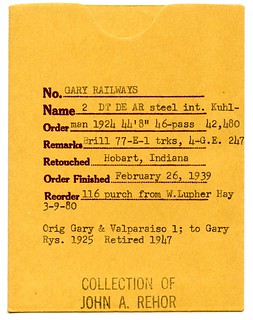
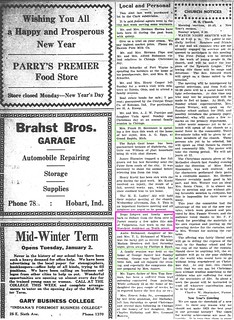
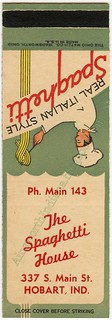
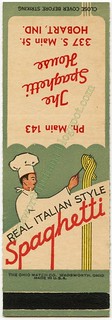
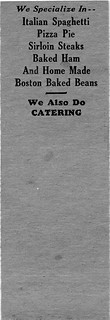
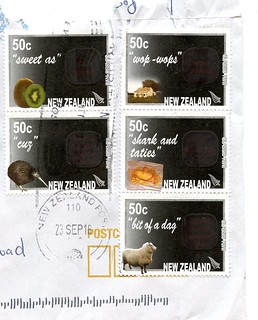
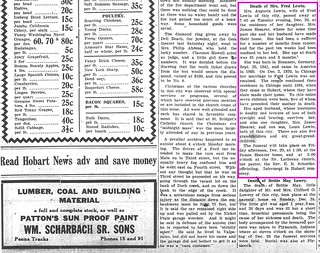
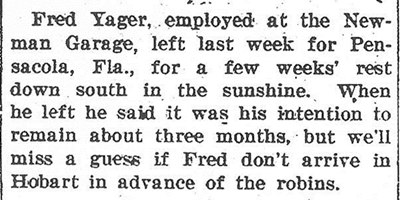
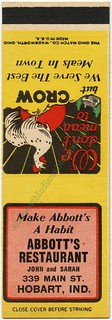
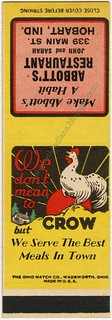
That Sarah, she was a worker. She cooked, she waited tables, she swept and mopped and cleaned. John was what you might call the PR guy. He'd stand at the cash register, dressed up all sharp, watching Sarah work.I can't find any information to help me date matchbook covers produced by the Ohio Match Co.
When we went to Abbott's, we'd park where the bank is now, then walk up the back alley, come in through the back door, walk right through the kitchen and go sit down in the dining area. Nobody ever objected.